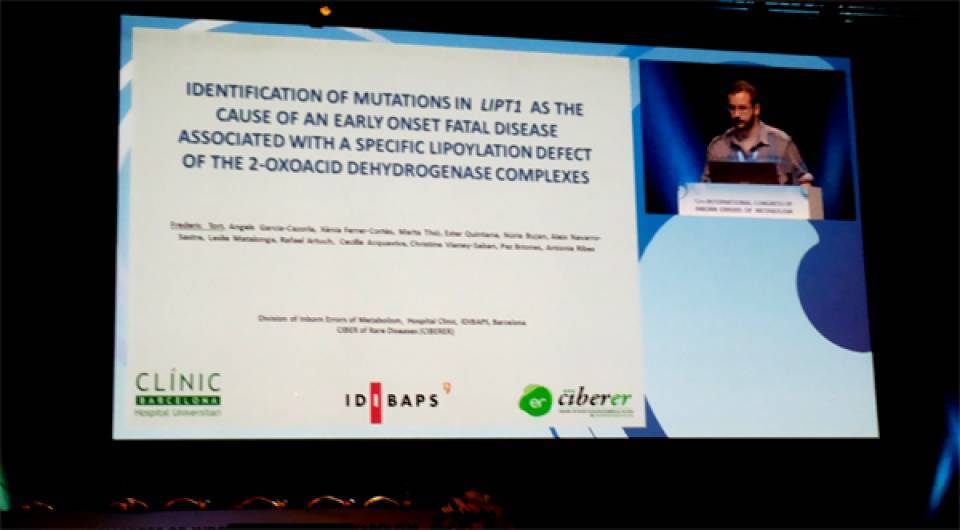In 2011, this group identified mutations in the gene NFU1, the first genetic defect associated with a deficiency in the biosynthesis of lipoic acid. This work (1) opened the door to a new field of research in the field of rare diseases. Today over 30 patients with mutations in NFU1 have been identified and three new genes were associated with this acid biosynthesis (BOLA3, LIAS, IBA57).
In the present study, published in Human Molecular Genetics (2), a specific deficiency in transport of lipoic acid to its target proteins has been identified for the first time. This deficiency is due to mutations in the gene LIPT1. The results obtained are of great importance for the diagnosis of some rare diseases and to better understand the molecular mechanisms involved in the metabolism of lipoic acid, as well as for the future design of new therapeutic strategies.
Articles references:
(1) Navarro-Sastre A, Tort F, Stehling O, Uzarska MA, Arranz JA, Del Toro M, Labayru MT, Landa J, Font A, Garcia-Villoria J, Merinero B, Ugarte M, Gutierrez-Solana LG, Campistol J, Garcia-Cazorla A, Vaquerizo J, Riudor E, Briones P, Elpeleg O, Ribes A, Lill R. A fatal mitochondrial disease is associated with defective NFU1 function in the maturation of a subset of mitochondrial Fe-S proteins. Am J Hum Genet. 2011 Nov 11;89(5):656-67. doi: 10.1016/j.ajhg.2011.10.005.
Read the article
(2) Tort F, Ferrer-Cortès X, Thió M, Navarro-Sastre A, Matalonga L, Quintana E, Bujan N, Arias A, García-Villoria J, Acquaviva C, Vianey-Saban C, Artuch R, García-Cazorla A, Briones P, Ribes A. Mutations in the lipoyltransferase LIPT1 gene cause a fatal disease associated with a specific lipoylation defect of the 2-ketoacid dehydrogenase complexes. Hum Mol Genet. 2013 Nov 28. [Epub ahead of print]

